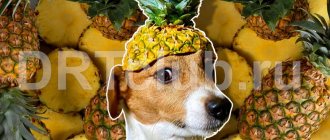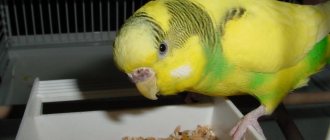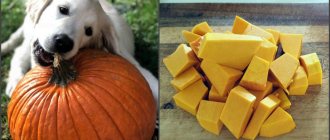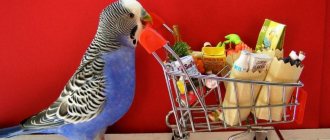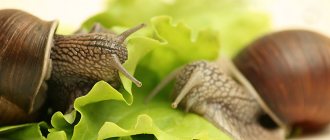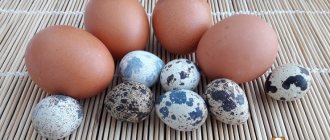Home » Interesting collections about cats and dogs
Dogs, like humans, require fiber for normal digestion. A large amount of it is present in fruits and vegetables. In addition, they are tasty, rich in vitamins and other beneficial substances. Start accustoming your pet to plant foods from puppyhood, as experts recommend.
- 2 Carrot
- 3 Cucumber
- 4 Zucchini
- 5 Cauliflower
- 6 Pumpkin
- 7 Tomatoes
- 8 Bell pepper
- 9 Apples
- 10 Pickled white cabbage
- 11 Garlic
- 12 Greens
Beet
This root vegetable contains magnesium, iron, potassium, vitamins A, B and ascorbic acid. It has a positive effect on the heart and liver. Beets stimulate the intestines, providing a mild laxative effect.
It is best to give it to your dog boiled, as it is better absorbed this way. You can also add it to porridge by grating it. Just do not overdo it with the quantity, otherwise you will cause diarrhea or allergies in the animal. In addition, beets promote color change in breeds with light coats.
Vegetables not recommended for feeding
There is a certain list of vegetables that are not recommended for feeding to a dog.
Corn
In general, corn is not a dangerous vegetable for dogs. But you can’t call it useful either. Corn is often added to cheap pet foods because it is inexpensive, high in fiber, and very filling. This is, perhaps, all her dignity.
Although corn is a source of protein, dogs do not have the enzymes to digest it. Therefore, at the exit you can see whole, undigested grains.
However, despite the dubious benefits of this vegetable, corn is perhaps the most important component of dry dog food.
Potato
In its raw form, this vegetable is a source of solanine, a very dangerous and toxic substance.
As for boiled potatoes, they are a rich source of carbohydrates and starch, which contribute to obesity and joint problems, arthritis.
All the more strange is the fact that despite the absolute uselessness of this product, very often in the composition of expensive animal feed you can see starch as the main filler.
Onion and garlic
It is believed that dogs should absolutely not be given onions and garlic. This is due to the fact that onions and garlic contain thiosulfates, which negatively affect red blood cells and can cause anemia (anemia).
But in order for serious problems to arise, you need to regularly feed your pet 5-6 heads of garlic per week! You understand that this is simply physically impossible!
If your dog accidentally eats a small piece of onion, nothing bad will happen. Sometimes I give one clove of garlic to Jack along with a dried piece of bread as a prophylactic against helminths.
Legumes
Peas, beans, lentils, beans do not provide any benefit and are poorly digested by the animal’s body, causing flatulence.
Mushrooms
Everyone knows that mushrooms, like a sponge, absorb harmful substances from the environment. They attract heavy metal salts and radioactive particles like a magnet and are poorly absorbed due to the high content of chitin in them.
If the human body can digest such heavy food, then eating mushrooms by a dog can lead to disruption of the pancreas and liver. Therefore, it is better not to take risks and completely exclude this product from the animal’s diet.
Tomatoes
First, introduce tomatoes in small portions and monitor the reaction of your pet’s body. If it doesn't start to itch, then you can continue. It is better if the tomatoes come from your own garden, since they are often treated with chemicals to speed up ripening and give them a marketable appearance. This will negatively affect the dog's health.
Tomatoes are easier to digest when slightly stewed than when fresh. They contain antioxidants. Remember that an excess of this vegetable can cause tachycardia and muscle weakness.
Healthy vegetables and fruits for dogs' health
A dog that has not been accustomed to plant foods since childhood will, in most cases, refuse vegetables, since they are not part of its natural diet. However, plant-based foods are beneficial for pets, so they should be part of the daily diet. In reasonable quantities, such food has a beneficial effect on the animal’s health, as it is a source of fiber, which improves digestion. Veterinarians recommend feeding adult dogs with vegetables and fruits that are included in the list of permitted ones, so that the body receives a sufficient amount of vitamins of various groups. Let's figure out exactly what vegetables and fruits you can give your dog.
Vegetables and fruits that you can definitely give to dogs
First, let's look at what fruits and vegetables our pets can eat without fear of consequences. Such products are neutral and very rarely cause allergies. They can be used every day, as much as the animal wants, but of course you cannot force it.
Vegetables that are definitely safe
- Carrot. Most four-legged friends simply love to chew on carrot-shaped treats. And it's just wonderful! Carrots are rich in vitamins and beneficial microelements. The vitamin A it contains improves vision, reduces the incidence of cancer, beta-carotene makes the coat smooth and silky. There is no need to think in what form to give this fruit to the dog. You can eat either raw carrots or boiled or baked ones, whichever you prefer. Grate with a drop of flaxseed oil, cut into cubes, serve with whole carrots. The latter is useful for teeth, as it acts as a brush. When a puppy chews a carrot, plaque is removed, more saliva is produced, which helps reduce bacteria in the mouth, and, consequently, reduce the disgusting odor.
- Cucumbers. An excellent option to dilute a mixed diet. This fruit is completely safe for dogs. Removes unpleasant odor. Rich in B vitamins. Contains microelements such as: - magnesium; - potassium; — vitamin PP; — vitamin C and B; - vitamin B; - carotene; - chlorophyll. It consists mainly of water and contains virtually no fat or carbohydrates. Perfect as a means of combating extra pounds. But the serving size should still be limited so that diarrhea does not develop.
- Sweet potato. You can eat in moderation, otherwise the animal will begin to gain weight. Sweet potatoes are well digestible, rich in minerals, rich in vitamins B6, C, and beta-carotene. You cannot feed raw sweet potatoes; you must cook, bake, or boil them.
- Bulgarian pepper. You can let your pet crunch with fresh sweet bell peppers, but first remove the seeds. It contains beneficial vitamins and beta-carotene necessary for a luxurious, dazzling, thick coat. It is better to buy red peppers rather than green or yellow ones, as they contain more nutrients. If the dog refuses to eat a raw product, it can be baked. What other vegetables and fruits can be given to puppies and adult dogs.
- Pumpkin. The product prepared by boiling is suitable for pets suffering from constipation. It improves digestion and contains many beneficial microelements.
- Zucchini. This fruit, like pumpkin, is very safe for animals. It contains useful substances, potassium, folic acid, calcium. However, pumpkin is more suitable for a dog's diet. Zucchini is served raw or baked.
- Celery. The product contains a huge amount of substances that have a positive effect on the body. Namely: - phosphorus; - amino acid; - vitamin A; - vitamin C; - vitamin B; - calcium; - sodium. Thanks to this set of microelements, celery has an effect on reducing the possibility of cancer. Improves blood circulation and heart function. It is an anti-inflammatory agent and gives fresh breath. Only a stalk of celery is suitable for nutrition, although it has high rigidity. Therefore, it needs to be cut into small pieces. Very useful in winter.
- Cauliflower. Unlike white cabbage, cauliflower is good for the stomach of doggies. It is quickly and easily absorbed without irritating the mucous membrane. For diseases of the gastrointestinal tract, mixed meals can be diluted with this product. Since there is no coarse fiber in it, bowel movements will be simple and regular. If the gallbladder and liver are not working well, then cauliflower can also be fed to your pet.
Fruits that are definitely safe
- Apples. Earlier in the article: “What can you feed a one-month-old puppy,” we wrote that the full raising of puppies must be accompanied by a balanced diet, which is why the menu includes apples. They are extremely useful for people and animals. They almost always do not cause allergies, so this is the first fruit that is introduced into the diet of children and puppies. A green apple with peel improves digestion. It contains vitamin C, which is necessary for life. A salad of grated carrots and apples is very useful for a growing organism.
- Bananas. What vegetables and fruits can your pet dog eat? Of course bananas, but only unripe ones. Overripe fruits can cause stomach upset. This product should be included in your dog’s diet, as it has beneficial properties and enriches the body with potassium, biotin, and fiber. Half a banana once every five days
- Watermelon. You can give watermelon to your dog all the time, naturally, which was grown without dyes; it is difficult to find such in the city of Moscow and other cities of our country. It is worth feeding watermelon along with the rinds; they contain minerals useful for growth.
- Melon. Although this fruit does not particularly benefit the body, it copes well with thirst. It should be given to the animal in small slices, but quite often.
- Gooseberry. It rarely provokes allergies, so it can be consumed in large quantities. Only if you planted and grew them yourself, without chemical additives.
- Pear. Firm pears, like apples, are not allergenic products, so they are introduced into complementary foods for small dogs first. Puppies happily feast on crunchy fruits.
- Rowan. The tasty sweet berry contains many vitamins, without having any contraindications for the health of pets.
- Blueberry. Another berry that you can feed your dog without fear. However, four-legged friends do not like to eat it, as it has a specific taste.
Fruits and vegetables that can be given to dogs, but with certain restrictions
We have already found out whether dogs can eat vegetables and fruits. But there are fruits that, in principle, can be eaten by animals, but only if an allergic reaction does not occur. In its absence, the portion of these fruits should be in a limited volume. Advice: to avoid negative effects and harm your pet’s health, start introducing the product gradually, one feeding in the form of a small piece once a week.
Vegetables whose benefits are worth thinking about
- Turnip. On the one hand, this fruit is healthy because it contains a lot of calcium and has antibacterial properties. Although the stomachs of representatives of predators do not have special enzymes for breaking down the shell of a plant cell, turnips still accelerate the absorption of products. However, it is worth introducing it a little at a time. Some animals periodically experience diarrhea after consumption.
- Beet. Red-colored pets who regularly eat beets have a bright, deep coat color. Folic acid, antioxidants, potassium - these are the advantages of the fruit. But unfortunately, it often causes an allergic reaction, which is expressed by severe diarrhea.
- Radish. It is a natural brush for canine fangs because it consists of hard fibers. But you can’t feed it to a dog with a sick stomach.
- Cabbage. Many of our smaller friends love to gnaw white cabbage, as the leaves crunch on the teeth. It is filled with natural antioxidants that give your pets a healthy appearance. But fresh cabbage provokes bloating and pain in the intestinal area, so it is better to stew or cook it.
- Eggplant. Vegetables can be given from time to time, only in cooked form, for example, boiled or baked. Contraindicated in animals with kidney disease. Is an allergenic product.
- Tomatoes. You can feed your dog ripe red tomatoes in small quantities. They have anti-inflammatory properties. But if you overdo it with the serving size, then deterioration of digestion, muscle weakness, and failure of the cardiovascular system will certainly occur.
- Asparagus. Raw asparagus should not be given to the baby animal, as it is very poorly digested. Therefore, so that it does not lose all the useful microelements during cooking, it is steamed.
Fruits whose benefits are worth thinking about
- Apricot. Be sure to feed without seeds and peels. With frequent and heavy use, diarrhea occurs.
- Persimmon. The peel and seeds are also removed. Soft varieties help normalize intestinal function.
- Kiwi. What other fruits and vegetables can dogs eat as treats? Kiwi, which contains vitamin C, is perfect for little ones with a sweet tooth, but only no more than two cups per month.
- Papaya. Fruit brought from an exotic country should be given in its purified form. A small block of interesting fruit can stop diarrhea. Constant eating will lead to constipation.
- Raspberries and strawberries. Sweet aromatic berries that many dogs love very much. Berries are strong allergens, so monitor your pet’s body’s reaction. If everything is in order, then you can eat two pieces a day in the summer.
- Cherry. Cherries, like sweet cherries, are eaten pitted in small portions. Veterinarians advise against consumption. These berries are not beneficial for dogs.
- Currant. If your pet likes the berries and does not show allergy symptoms, then there is no need to limit the quantity.
These vegetables and fruits should not be fed to dogs.
We have found out what vegetables can be given to dogs, now let's look at what is not allowed. There is a certain list of vegetables and fruits, which includes prohibited foods for animals. These plant fruits can cause serious harm to your pet with disastrous consequences. Therefore, I advise you to read and show the list of those who rated it not only in your own opinion, but also according to the recommendations of veterinarians to your dog lover friends. It’s also worth reading: Can dogs have nuts?
Vegetables you definitely shouldn't feed dogs
- Broccoli. Although this product contains many microelements beneficial to the body, it can still be harmful to the pet. Broccoli contains the element isothiocyanate, which is very toxic to dogs and can cause death if consumed in large quantities every day.
- Green tomatoes. They pose a great danger to our smaller friends, unlike red ripe tomatoes. When breastfeeding, an upset stomach will certainly occur, and various diseases of the gastrointestinal tract may also appear. Avoid this feeding.
- Corn. Of course, dry food manufacturers often add corn to livestock food. Corn is a filling and cheap food that contains a huge amount of fiber. But it will not bring any benefit to pets, but on the contrary, it can cause harm. If a dog gnaws on several raw ears of corn, he will develop a colon obstruction. The doggies' stomach does not have enzymes to break down the shell of plant fiber, so the output will be undigested corn kernels.
- Potato. Raw potatoes are harmful to both the animal and human stomachs. It contains poisonous corned beef. Therefore, eating a raw product will lead to poisoning. Eating milk-based purees will definitely lead to diarrhea. It is eaten in small quantities baked or boiled.
- Onion garlic. Can they be fed to dogs? Veterinarians recommend avoiding these products. They contain thiosulfates, which negatively affect red cells, which will lead to anemia.
- Legumes. A plant from the legume family is poorly absorbed by the body, and only causes bloating and stomach pain in predators.
- Mushrooms. Very heavy food for animals. Should not be included in the diet at all. Problems with the liver and pancreas may occur.
Fruits you definitely shouldn't feed dogs
- Grape. Even a small portion will harm the dogs. Vomiting, severe diarrhea, dehydration - all these are the consequences of eating berries. And then kidney failure.
- Peaches. Contraindicated for use in dogs as they cause diarrhea. And when fed with a bone, they are generally poisonous, since they contain cyanide.
- Citrus. They are strong allergens for our little friends. It's rare to find a dog that doesn't have a negative reaction to these fruits.
- Quince. The fetus causes profuse vomiting, leading to dehydration.
- Avocado. Due to the high content of a substance that impairs the functioning of the cardiovascular system and respiratory tract, it is contraindicated for dogs.
- Pomegranate. It corrodes the walls of the stomach very much.
Separately about greenery
In general, a dog's digestive system is not designed to digest leafy green vegetables. But, for example, mint can be given for fresh breath, basil has an antimicrobial effect, spinach reduces the risk of cancer, and some other leafy vegetables are antioxidants. Greens have very low nutritional value, so the benefits from them, compared to other vegetables, are negligible, or even none at all. And the pets themselves do not have any particular addiction to greens, especially fragrant ones.
For general development, it should be noted that relatively safe for dogs in small quantities (no more than 1 teaspoon per day) are basil, mint, lemon balm, spinach, lettuce, sorrel, parsley, dill, oregano, rosemary. Parsley should not be given to dogs with kidney problems or pregnant bitches; basil can cause an allergic reaction; lettuce can cause diarrhea.
Similar articles:
- Dry dog food Wolfsblut
- Can a dog have pasta?
- Food for white dogs
- Why doesn't my dog eat dry food?
- Dog food Now
- Probiotics for dogs
Conclusion
In moderation, zucchini is a healthy treat for almost all dogs. It's well-tolerated and full of vitamins and minerals while remaining low in calories, making it a great snack or treat.
Introducing different textures and flavors is a great way to keep your dog's brain active as he ages. Of course, every dog is different, so we recommend introducing it slowly and trying a small piece first before giving larger amounts.
Possible harm
The share of plant foods in a dog’s diet is only 10–20% of the daily diet.
Uncontrolled feeding of even healthy vegetables will harm the animal. Dogs do not synthesize the enzyme that breaks down fiber, and the small intestine is relatively short.
Undigested plant fibers accumulate in the colon, creating a favorable environment for the proliferation of harmful bacteria. Because of this, fermentation begins in the intestines. Overfeeding even healthy vegetables can result in diarrhea.
Zucchini pulp, leaves, and seeds contain the substance cucurbitacin. The plant synthesizes it to protect itself from animals. Normally, it does not harm dogs and is not palatable.
If the growing technology is violated, the concentration of cucurbitacin increases and the pulp becomes bitter. Of course, the dog will not eat bitter food, but just in case, there is no need to give bitter fruits. Cucurbitacin irritates the gastrointestinal tract and causes eating disorders.
For large
Large dogs need protein food more, so the proportion of vegetables in their diet should be less - on average it is about 20-30%. Also, large breeds are more resistant to the effects of allergens and toxins, so they can be given vegetables from the “risk group” (tomatoes, eggplants, beets) with less fear.
Toxins from onions and potatoes affect their body more slowly - so if your dog accidentally eats a slice of onion or a piece of potato, you don’t have to sound the alarm, but wait until the toxic substances are processed by the dog’s body.
Rules for preparing vegetable dishes for animals
It is important to properly prepare vegetables for your dog so that they benefit the body. Vegetable supplements to the diet are made raw, steamed, baked and stewed. Choose a preparation option, taking into account the properties of the product.
You can alternate processing methods. For elderly pets, food crushed in a blender or grated is suitable. When stewed, vegetables are easier to digest.
Recommendations from veterinarian nutritionists:
- Dogs may swallow celery stalks whole because they are too tough to chew. This will cause intestinal blockage. It must be crushed before serving.
- Do not give vegetables to small breed dogs or puppies raw. They cannot chew them thoroughly, and their weak stomach cannot digest them.
- It is advisable to steam fruits rich in beta-carotene. Thus, this valuable element is better absorbed.
- It is useful to use flaxseed oil to prepare vegetable salad.
- Canned vegetables must not be fed to animals.
- Raw fruits in combination with dairy products will lead to unpleasant consequences.
- It is recommended to dilute meat dishes with root vegetables.
- Heat treatment should be carried out for about 20 minutes. No salt is added.
- Eggplants should not be given more than once every seven days.
- Red vegetables can not only ruin your pet’s snow-white coat, but also cause an allergic reaction.
Video: healthy vegetable casserole recipe for dogs
For puppies
Puppies of any breed benefit from vegetable complementary foods in the form of carrots, cucumbers, pumpkins, crushed to a puree. Teenage puppies can be given boiled vegetables in pieces.
It should be remembered that the older the dog, the more protein should be in its diet, therefore, once the puppy reaches adolescence, vegetables must be gradually replaced with meat (of course, not completely eliminating them, but bringing their amount to the “adult” norm).
Rules for introducing plant foods
In order not to provoke adverse consequences, it is recommended to introduce new foods into your pet’s diet in small portions, carefully monitoring its condition.
If your dog shows signs of allergies or other warning signs, the fruit or vegetable should be removed from his diet.
It is necessary to seek help from a veterinarian when, after introducing new plant foods, your pet experiences the following painful manifestations:
- Swelling.
- Difficulty in breathing.
- Discharge from the nose and visual organs.
- Vomit.
- Diarrhea or constipation.
Knowing what vegetables and fruits can be given to a dog and correctly forming your pet’s diet, you can improve his health, avoid a number of diseases and even increase his life expectancy.
